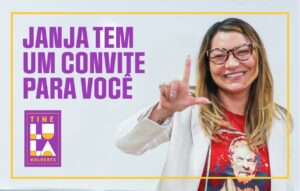Addis Ababa, November 21, 2012 –The African Union Commission (AUC), the Food and Agriculture Organization of the United Nations (FAO) and Instituto Lula of Brazil announced today they were joining efforts to help eradicate hunger and undernourishment in Africa.
The decision was reached at a meeting between the Chairperson of the African Union Commission (AUC), Nkosazana Dlamini Zuma, FAO Director-General, José Graziano da Silva, and former Brazilian President Luiz Inácio Lula da Silva, Honorary President of the Institute bearing his name.
Download high resolution pictures at Lula Institute’s Picasa.
This effort brings together the AUC’s leadership, FAO’s technical expertise and renewed commitment to fight hunger as well as the political backing of former Brazilian President Lula Da Silva. Knowledge and support from other international, regional and national partners will also go a long way to enhancing this new partnership.
During the meeting at the headquarters of the African Union in Addis Ababa, the three parties agreed to convene a high-level meeting with African and International Leaders on “New, unified approaches to end hunger in Africa”. The meeting will be held in Addis Ababa on 4 and 5 March 2013.
“Food security is one of the key priorities of the African Union. Africa has the potential to increase its agricultural production given that almost 60 percent of the arable land in the continent is still not utilized. This enormous potential can make a real difference to improve our agricultural production and food security. It is time to move beyond subsistence agricultural production and consider ways of eventually embarking on agro-industrial production,” said Dr Dlamini-Zuma.
Lula stressed his willingness to share with FAO and the African Union Brazil’s successful experiences in fighting hunger and promoting income distribution through cash transfers and more inclusive development. He also spoke of the “miracle” that was needed to boost agricultural production.
“The miracle is permitting that poor people have access to credit and technology. We want poor people to learn that with credit and technology they will produce more, eat better, have surpluses to sell and will have additional income to improve the lives of their families,” said Lula da Silva.
“Building a food and nutrition-secure Africa requires better governance, renewed political will and strong commitment to work together through innovative and comprehensive food security and nutrition programmes and strategies involving all concerned stakeholders,” said Graziano Da Silva. “This is an African-led effort with the support of partners such as FAO and Instituto Lula,” he added.
Dlamini-Zuma, Lula da Silva and Graziano da Silva agreed on the importance of focussing efforts on strengthening the participation of women in agriculture and food systems and investing in children and youth.
“Women are very much involved in agriculture, therefore our programmes should take into account gender and youth participation”, said Dr Dlamini-Zuma. “We also agreed to work together on one of the African Union’s flagship initiative, the Programme for Infrastructure Development in Africa (PIDA), to promote infrastructure in the continent. Without infrastructure we can never reach our full potential in development,” she added.
The three leaders discussed the link between conflict, hunger, peace and food security. “Food security is the best weapon to promote peace” summed up Graziano da Silva.
Hunger free Africa – shared vision
The partnership will be based on the shared vision that a hunger-free Africa is possible and that concerted efforts can achieve tangible improvements in food security and nutrition, reversing the rise in hunger that has seen the number of undernourished people in the continent increase from 175 million in the early 1990s to 239 million today.
Although many challenges remain in the African Continent, Zuma, Lula da Silva and Graziano da Silva noted that there are many positive examples of countries making significant progress in food security and nutrition. Their success as well as other positive examples, such as Brazil’s, can be used to learn and build on what works.
Among the areas to focus action, the leaders agreed on the need to scale up and build on existing successful initiatives and to promote knowledge-sharing between countries. They also stressed that high-level dialogue needs to be facilitated to reinforce political commitment in the fight against hunger, food insecurity and malnutrition.
The meeting also highlighted that much remains to be done in terms of coordination, allocation and deployment of financial and human resources and the strengthening of regional and national institutional capacities. It is in this context that the proposed partnership seeks to add value to existing efforts through concrete actions to enhance overall food and nutrition security in Africa.
Learning and building on what works
The renewed partnership is intended to identify all political, economic, social and human factors that lead to sustainable improvements in inclusive growth, food security and nutritional outcomes. It will provide added-value to ongoing initiatives and programmes by harnessing sustained political commitment and creating the required momentum for a wider engagement of other agencies, both national and international, involving the private sector, strengthening the role of civil society, peer learning from successful country experiences and capitalizing on new forms of innovative partnership and solidarity.
Listen to Lula’s speech at the meeting (Portuguese only)



